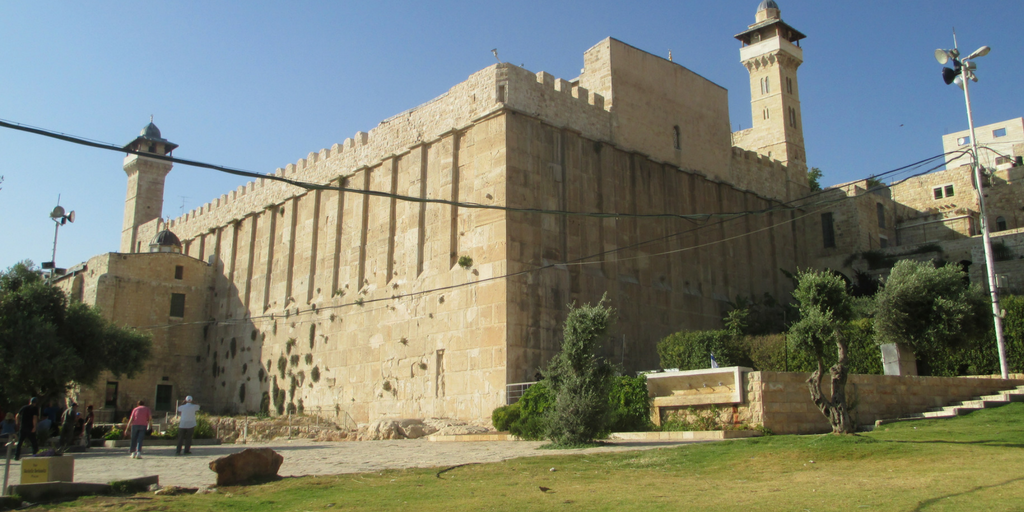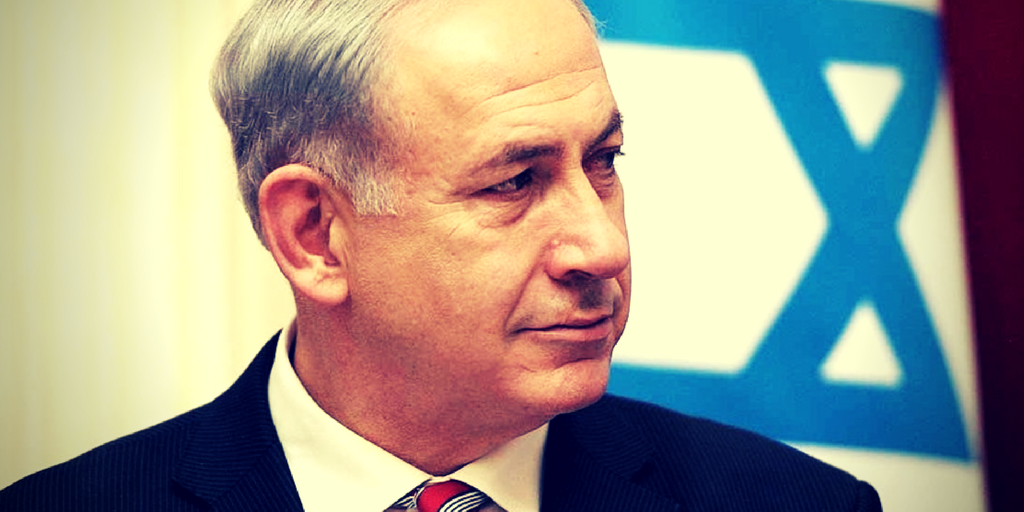The arrest of former Minister Gonen Segev, on charges of treason, constitute a regrettable vindication of my assessment of the man – over 25 years ago.
….the traitor appears not a traitor; he speaks in accents familiar to his victims, and he wears their face and their arguments…. He rots the soul of a nation…he infects the body politic so that it can no longer resist…The traitor is the plague—Marcus Tullius Cicero, (106-43 B.C.), on Treason.
It has been an eventful week—and several other topics could well have been the focus of this INTO THE FRAY column—for example, the court decision to quash the confessions extracted under duress from the suspects of the Duma arson; or the ineffective IDF response to the continuing violence emanating from Gaza; or the looming “ultimate deal”, which, it is rumored, is soon to be advanced by the Trump administration.
Tectonic impact
I chose, however , to deal with the announcement on Monday, that former government minister, Gonen Segev, had been arrested on suspicion of spying for Iran and detained on charges of treason involving “espionage, aiding an enemy in war time, as well as providing information to the enemy.”
The reasons for this choice were both personal and substantive: Personal, because of my acquaintance with Segev in the past when I warned of his grave character flaws; and substantive, because of the tectonic (albeit seldom conceded) impact these flaws have had on the fate of the nation since then.
Of course, this is not the first brush the ex-minister has had with the law, nor the first time he has brought disgrace to the political edifice of the nation.
Readers will recall that in 2004, he was arrested on charges of drug smuggling—along with credit-card fraud and misuse of an expired diplomatic passport—and subsequently convicted and jailed for several years. Following his imprisonment, Segev moved to Nigeria, where apparently, his initial contacts with Iranian officials were made—and his alleged espionage activities began.
Of course, it is yet unclear how much damage Segev’s suspected betrayal of his country in recent years has caused. There can, however, be little doubt as to the huge damage that his betrayal of his voters, 26 years ago, wrought on the nation—when he crossed ideological lines, abandoned his hawkish electoral pledges and facilitated the ratification of the Oslo Accords.
Segev & Oslo: The Ethical Parallels
Accordingly, up until Monday, we knew that the Oslo Accords, which:
– conferred international acclaim on the arch-murderer Arafat;
-cost thousands of Israelis their lives—and many more, their limbs;
– provided Judeocidal gangs access to military grade explosives; and
– allowed armed terrorist militias to deploy within mortar range of our nation’s capital;
owed their existence to a convicted drug smuggler that betrayed his voters, who sent him to the Knesset to prevent precisely the policy he permitted.
Since last Monday, we know that these appalling accords, that brought so much death and destruction to Israeli streets, buses, and sidewalk cafes, came about not only due to someone who dealt in drugs and who betrayed his voters—but someone who, it seems, betrayed his country and his people—in the very real sense of the word.
There are numerous parallels between Gonen Segev and Oslo.
Indeed, in many ways, Segev and Oslo are the moral (or rather “immoral”) reflections of each other.
While Segev himself represents a mark of shame on Israel’s public life and “point of singularity” in terms of deceit and duplicity; so too the Oslo Accords represent a mark of shame on our national history, a reprehensible nadir of broken promises, public deception and self-delusion.
Almost like Siamese twins
Moreover, in many ways, almost like Siamese twins, neither Segev nor Oslo would exist without the other—without the essential symbiosis between them. After all, without Segev and his uninhibited proclivity for treachery, there would be no Oslo. So too, without Oslo and the desperate desires of those who concocted it, there would have been no Segev in a ministerial post, which gave him access to the information he allegedly supplied to the enemy.
So just as Oslo embraced bitter enemies –so did Segev.
Indeed, in large measure, Oslo was a point of inflexion in the history of Zionism, after which nothing was as it was before. Everything once a hallowed virtue (such as attachment to the homeland and proactive Jewish settlement throughout it) became a heinous vice.
So too Segev, in large measure became a point of inflexion in the annals of Israeli politics, a point beyond which a sense of shame disappeared as a constraint on the behavior of elected incumbents, and after which “prostitution” of the profession of politics became acceptable, even expected. Political pledges became worthless and commitment to ideological principles, nothing more than bargaining chips to be swiftly exchanged if and when a more personally advantageous opportunity was detected.
Unbridled individual ambition became the supreme value, pushing aside any obstacle in the way of its pursuit and consuming any moral inhibition that might impede its fulfilment.
Oslo’s deadly derivatives
Earlier, I suggested that Segev’s treachery had a “tectonic” impact on events that subsequently unfolded.
Allow me to elaborate—and corroborate—this seemingly far-reaching condemnation.
After all, Oslo was not a stand-alone disaster. To the contrary—it was the harbinger of successive calamities, which inevitably arose from its implementation.
In large measure, Segev was their midwife—their indispensable facilitator.
For, as mentioned, Oslo owes its birth to Segev, who clearly had it in his power to prevent it–but chose to deliver it instead.
So, just as without Segev, there would be no Oslo, so without Oslo there would be no Second Intifada, there would be no Disengagement, there would no uprooting of Jewish communities in Gush Katif, there would be no Hamas takeover of Gaza, no terror tunnels, no arsenal of fearsome rockets aimed at Israeli cities and towns far removed from Gaza.
All of these, and more, were, incontrovertibly, the pernicious progeny of Oslo; each, demonstrably, a deadly derivative of that infamous and ignominious initiative, all the pestilent products of Segev’s perfidy.
But beyond the gory procession of failures that the Segev-facilitated Oslo Accords ushered in, there was a far more profound—and sinister—degenerative effect, which began to afflict the tenor of Zionist thinking. For once the Oslo process began to dominate the political stage in Israel, its continued sustenance called for a sea-change in what hitherto had characterized Zionism’s approach to Israel’s foes. Whereas in the pre-Oslo era, the emphasis had been on robust, uncompromising deterrence; in the post-Oslo era all this changed—since persisting with it would have resulted in the swift demise of the initiative. Instead, the political leadership now embraced appeasement and far-reaching leniency toward enemy excesses and violations of commitments.
The consequences of this tectonic conceptual shift, we see today in the raging fires, the burnt out fields and the charred forests in the areas surrounding Gaza…
A personal perspective
I first encountered Gonen Segev, in early 1992, when I served as the Secretary-General of the TSOMET movement. He then appeared out of nowhere, after years during which he had not been seen participating in any activities of the movement, to compete for second place in the TSOMET list for the Knesset. (For readers whose political memory does not go back 26 years, TSOMET was a non-observant, hawkish party, which vehemently opposed the “land-for-peace” concept , on which the Oslo Accords were based.
To many—apparently including the TSOMET chairman, former IDF Chief-of-Staff Lt-Gen. Rafael (“Raful”) Eitan—he appeared to be “the salt of the Earth”, a sturdy, good-looking young man, an authentic Israeli with a medical degree and a record of IDF combat service, who was both charismatic and charming. Many—apparently including Raful— were led astray by his deceptive charms–which eventually led to the demise of the movement in which they placed their trust and the decline in public support for the principles in which they believed.
Similarly, to many—apparently including former IDF chief-of-staff, Yitzhak Rabin—the Oslo Agreements were perceived as a refreshing and innovative initiative, a masterstroke of far-reaching and far-sighted statesmanship, ushering in a new era of regional peace and prosperity, in an EU-like “New Middle East”, stretching from Kuwait to Casablanca, from the slopes of the Atlas Mountains to the shores of the Persian Gulf.
Like Segev, so Oslo. Many—apparently including Rabin—fell prey to its deceptive allure (or rather, sinister spell) and allowed themselves to be led astray—until the disintegration of their “noble” vision.
A compulsive liar who gives deceit a bad name
In summation, allow me a brief lapse of modesty and a short personal epilogue.
As opposed to many, I was not deceived by Segev’s ample guiles. On the contrary, I quickly identified him as a compulsive liar, who “gives deceit a bad name”. As proof of this, the moment he was elected—with the support of Raful—to the number two slot on the TSOMET list, in place of the late Yoash Tsiddon, one of the most outstanding parliamentarians the Knesset has ever known, I withdrew my name from the list of contenders for other slots—and resigned from my post of Secretary-General .
The rest is history—and at times I wonder how different that history would have been if others had followed my lead…












